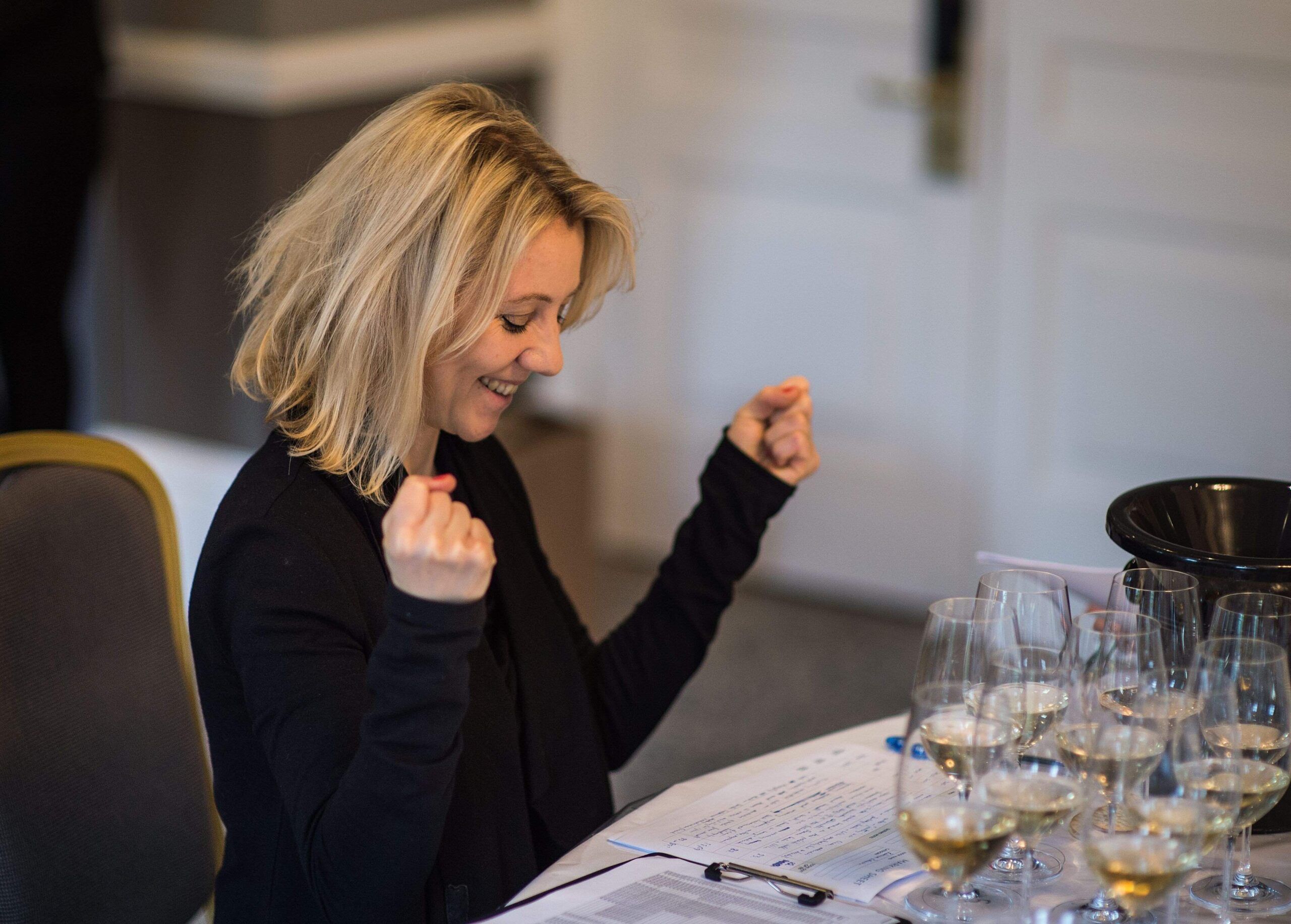Rebecca Palmer draws back the curtain on how she and the rest of the Corney & Barrow wine buying team go about their business.
For someone who spends so much of her normal working year flying around the world visiting producers, working on blends and exclusive labels, then Rebecca Palmer was hopeful that with all international travel grounded, due to Covid-19, it might free up more of her time. But where one door shuts a lot more have opened and she has found herself busier than ever keeping up with the demands and needs of transforming a business through these uncertain times.
“It’s been just as frantic, but in a very different way,” is how she looks back on the last 12 months.
She says it is hard to quantify just how much work has been done to transform Corney & Barrow from its traditional private customer and on-trade business to becoming a fully functioning e-commerce online business during Covid-19.
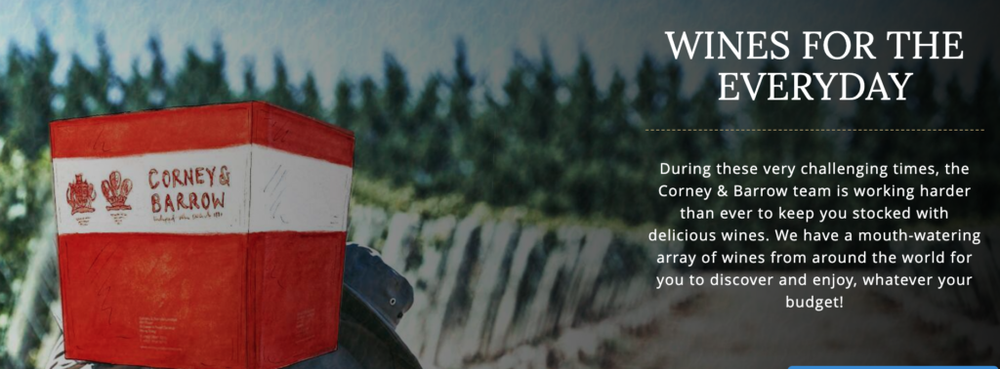
Corney & Barrow has worked across its various teams to help develop and fast track its e-commerce offer
Whilst it did have an e-commerce site before, it has had to be radically updated to cope with the enormous surge in demand it saw once we went into the first national lockdown in March 2020, which has hardly relented since. The latest iteration of C&B’s site had only recently been introduced and was very much in “phase one” of how it was being used and developed, says Palmer.
But the fact it was still in its bedding in stage meant it was also easier to quickly adapt and build more consumer service elements to in a very quick period of time, she adds.
Creating content
One of the biggest changes, says Palmer, is the enormous demand there now is across the team to be constantly producing good, relevant content that can be used on its website to help drive sales.
Whereas in the past a lot of that content creation had been at key times of the year, in order to produce pricing catalogues or regular tasting booklets for events, the demands of online means she and her team have had to concentrate far more of their time in ensuring the website content was as fresh, relevant and targeted as possible in order to drive sales.
“Lockdown changed everything,” says Palmer. “Consumer behaviour has changed so much. Covid sent us all online, by necessity and for entertainment, and we have gained new customers, who have come to us through a number of different ways. It helped that we were able to keep open throughout the initial lockdown, and to maintain our service levels at all stages, when many of our competitors closed to new customers temporarily or could not fulfil orders.”
(An example below of one of many online tastings that the C&B team has done with producers and its customers over the last 12 months that it also shares on social media and on YouTube).
She adds: “We saw unprecedented site traffic. And we absolutely threw energy at the online business, realising we needed to make the whole buying experience much easier and actually lead our customers through the process in a simpler, friendlier way. That meant doing the leg-work for them, pointing them in the right direction, creating pre-mixes, seasonal collections, special offers focusing on certain producers, doing more storytelling, refreshing content more often and also mixing up the media: with extra visuals, videos, masterclasses etc.We also realised the site and functionality required significant further development, which has accelerated massively during lockdown.”
For running a successful website is like keeping an open fire going, and if you do not keep on throwing logs on it, or in this case a regular churn of stories and articles about the wines and the producers behind them, it will soon go out and grind to a halt.
But now with people looking to buy wine online, seemingly 24/7, it meant creating the right combination of wines, prices, promotions and content that would appeal to as wide a group of people as possible.
Palmer says it has been great to see wines and ranges that she had initiallybought for the on-trade now doing so well online. Like the Chilean range that she expanded significantly in 2019, with half a dozen new independent producers from Aconcagua to Itata, all retailing in the crucial price segment from £10-20.
“These were introduced to bring more balance and interest to a range that had previously sat largely at entry-level,” says Palmer. “These new producers have worked so well for us during lockdown.”
“We have also had to work far more intensely between the buying and marketing teams,” explains Palmer.
Close relationships
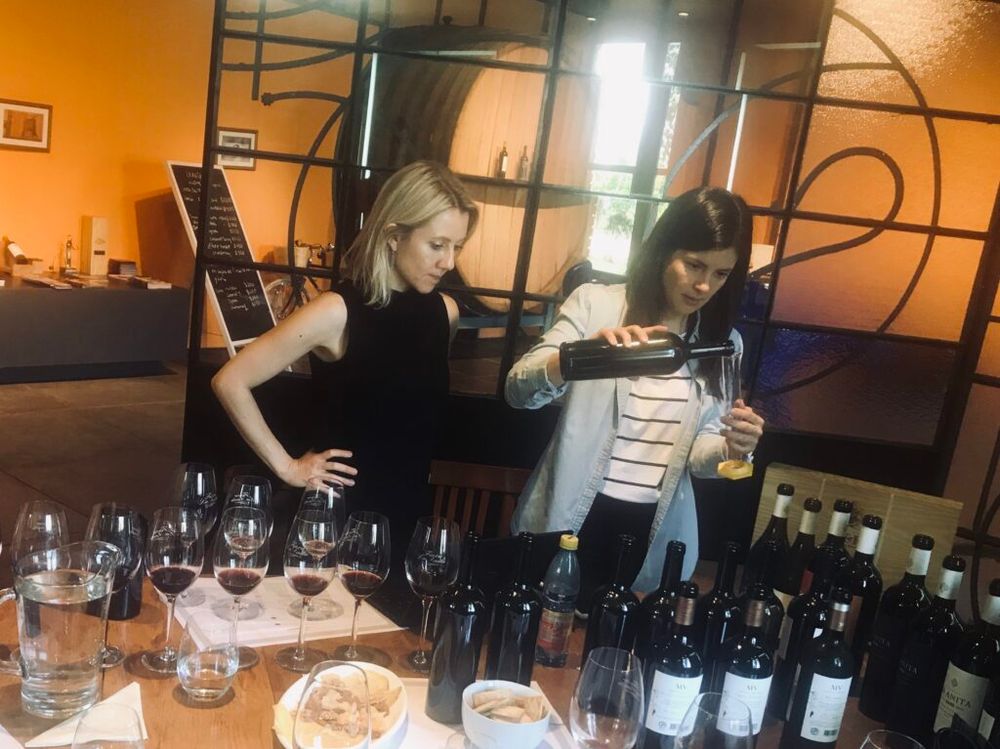
Rebecca Palmer working with one of its Argentine producers to help blend an exclusive wines from the estate
But having such close relationships and knowledge of each of its producers has meant a real bonus.
“As a buying team we know so much about our producers. We live very much in each others’ pockets. So as a team we are the best placed to be able to write about the wines and the people behind them.”
With the on-trade closed it meant a lot of those producers’ wines – that would normally be going out to its restaurant customers – now potentially had a new route to market, which was good news for their cash flow as well, says Palmer.
Every day wines and campaigns
Previously its marketing campaigns were targeted at C&B’s fine wine customers, now it needed mailers twice-weekly to attract your every day drinker too.
Palmer says it has been particularly good to see how quickly existing and new customers have responded to the new wines and ranges online. Putting those wines online, however, is only half the job. You then have to push and promote them.
“We saw such a huge amount of traffic that took us by surprise, so we needed to devise more targeted campaigns to make the most of the demand,” she explains.
“We have learnt so much, but we have also taken the time to make the changes we needed to make, and introduce Corney & Barrow to so many more people.”
That’s when C&B suddenly found itself going up against online retailers and wine sites with far bigger pay per click and customer acquisition budgets than it had, says Palmer. “We have had to find a way to compete with them,” she adds, which has also meant a lot of listening and talking to its customers about what they want.
Mixed and varied offer
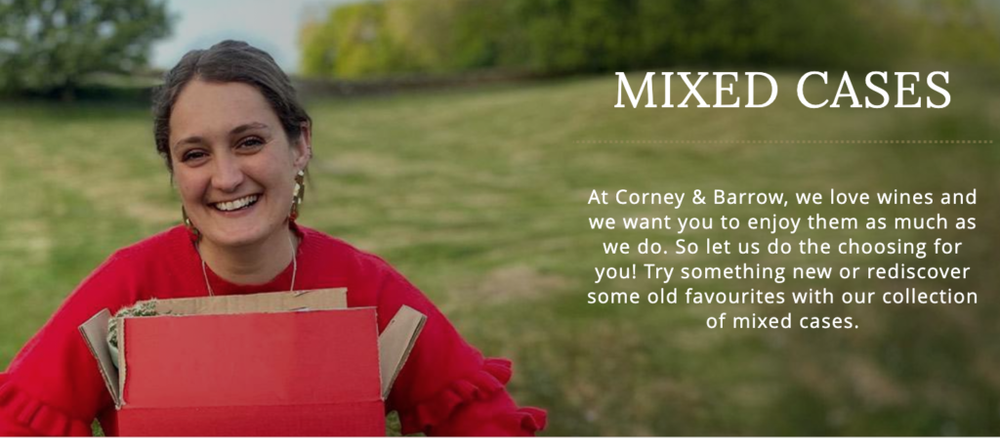
C&B also realised having a good spread of mixed cases was going to be key in continuing to drive sales online.
“I was part of a sort of ‘crack team’ with James Franklin, head of merchant sales, and our head of marketing Olivia Galea. We worked extremely closely to pull together this offering. It was very much a team effort and actually a fantastic process as we were able to bring all our angles to the mix and the result was greater than the sum of the parts. We are still working in this way, pulling together across sales, marketing and buying to come up with appealing mixes that make sense, listening to what our customers want and continually refreshing that offering.
“We have had to innovate and come up with compelling campaigns,” she says.
“It wasn’t just about creating more content, but also generating new experiences for our customers to enjoy,” says Palmer, who has hosted countless Zoom tastings and masterclasses in the last year.
All of which has been done with the majority of the C&B team at home, with the occasional periods of time when it has been possible to go into the office.
Sense of achievement
She certainly looks back on the last year with enormous satisfaction and a sense of pride about what the C&B team has been able to achieve.
“We are a tight knit team – much smaller than people might imagine. I would say we have done the equivalent of two years work in lockdown to get where we are now,” claims Palmer.
It is not just their customers they have worked so hard to please, but ensure they are doing all they can for their producers too. “We are their livelihoods and we take that responsibility very seriously,” she adds.
Equally it has also been a case of managing suppliers’ expectations and making sure they are aware of what C&B is doing to maximise their sales, within the restrictions of the on-trade being closed.
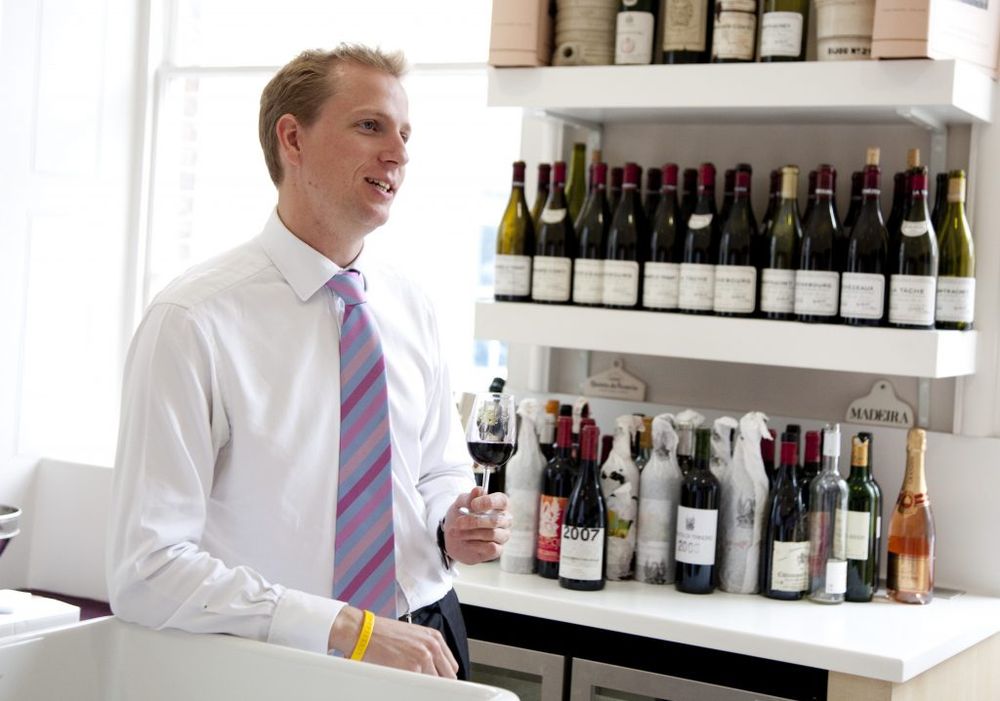
Palmer has worked even more closely with C&B’s James Franklin, head of merchant sales, over the last year to help co-ordinate the team effort across sales, marketing, buying
Whole new consumer
The last year has not just transformed certain aspects of C&B’s activities, but it has opened up and introduced the company to so many more new customers, says Palmer.
“While obviously the pandemic has been awful for everyone, it has forced us in new directions, presented us with challenges and opportunities, and actually forced us to create those opportunities – to develop new muscles that perhaps we would not otherwise have brought into play, certainly not as quickly,” she explains.
Interestingly the average bottle spend online has been in the “mid-teens”.
Logistical support
It also gave the company confidence that it has the logistics to be able to handle both a booming retail, online arm and a fully operational on-trade as and when it does return. A delivery operation that can handle wholesale shipments, through to single case drops, she says.
“We might deliver hundreds of cases to a single large customer, or single cases – or indeed single bottles if that’s what a customer wants,” says Palmer.
It can also manage that whole process end to end thanks to its own delivery vans, backed up by a national courier service, says Palmer.
Having its own van drivers have proved invaluable in building up its online business and reputation and seeing the red Corney and Barrow pull up outside your house. “People like to see that friendly face and build up a rapport with them,” she says.
Overall Palmer believes C&B now has a far more balanced business than it did before Covid-19.
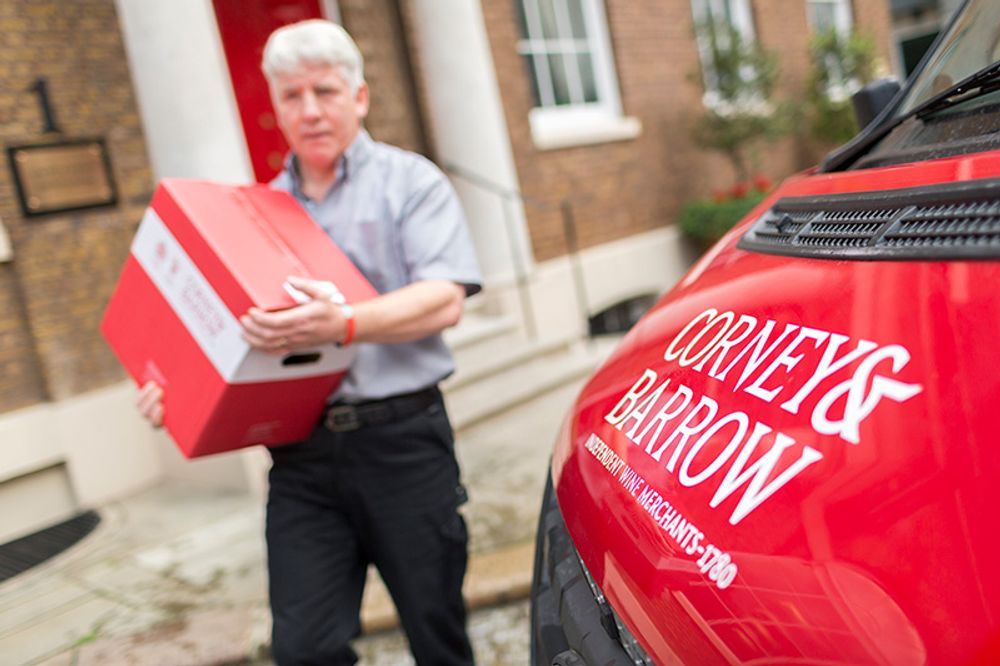
Having its own delivery fleet of vans has been crucial for C&B during lockdown, and will be doubly so now that the on-trade is starting to re-open, says Palmer.
Starting a career in wine
Running around vineyards, when she can, and working with winemakers 1,000s of miles away to blend wines, is a far cry from when she was at university pondering what to do in her life. Then, she says she was more interested in playing football than joining the university wine society.
But it was her degree in foreign languages that was to give her the skills to go on to be a wine buyer. Including a year living in Aix en Provence where she really started to take wine seriously.
“I did not know what I wanted to do when I left university. Lots of friends went off to work in the finance and banks, and I trained to be an aerobics and fitness instructor.” She had also spent “all my formative years training to be a professional dancer – her “long-held dream” but that was not to be.
She then saw an advert to be a PA at Mistral Wines, where she could use her fluent French skills. Two years working there and she was fixed on working in the wine trade.
“It was a brilliant grounding as Mistral dealt with virtually all aspects of the trade: supermarkets and independents and restaurants and was such a small team that you ended up doing everything. It was run by a lovely man, Anthony Lacey, who knew the wine business inside out. I learnt so much from him, by osmosis and through his active coaching. He taught me so much about the trade, about the buying and selling process, particularly with the multiples; and the importance of relationships.”
“It was like a microcosm of the trade. I did a huge amount with the key multiples including NPD, but also all the key wholesalers around the country, major London on-trade, events and PR. It was incredibly varied.”
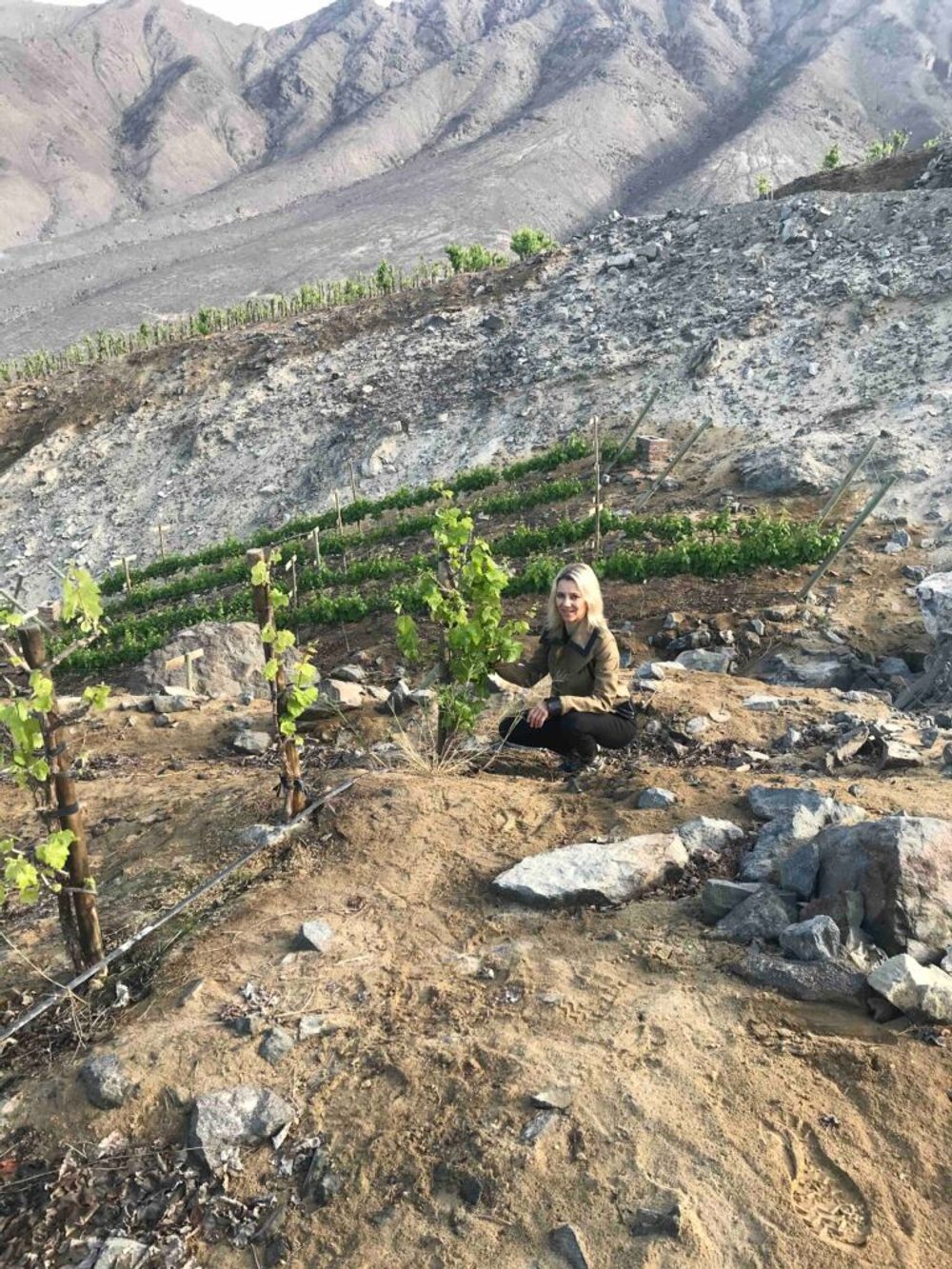
It’s a long way from being a professional dancer – Rebecca Palmer’s initial career choice – but she could not be happier with the life, friends and opportunity that working in the wine industry has given her
Mistral also put her through the WSET wine exams, even though she admits she found the whole process hugely intimidating. “Everyone seemed to know so much more than me and I found it all so incredibly stuffy,” she says.
Her next move was to Bibendum where she worked with Dan Jago on the off-trade side of the business, also looking after various European producers.
Development roles
From there she looked to work for herself and enjoyed a development role at design agency Stranger & Stranger that gave her invaluable insights into how brands, design, packaging and labelling are such an important part of any wine’s success. “I was able to work on business development and customer acquisition, as well as handling their trade PR,” she says.
“I learnt so much about the design process and I found it fascinating. It also really set me up in understanding how true NPD can work and to see how top designers work collaboratively to bring projects together. It was a real eye-opening time.
“I love the creative process of making something from nothing. I really do not see why, as a producer, you would spend so much time and effort stroking every grape only to whack a totally incongruous or poorly conceived label on the bottle. In my view, what’s on the outside of the bottle should be congruent with the quality and style of what is inside. Yes, you can over-style, over-package and that’s not great either, and of course style is subjective, but these days, poor quality design/execution are just sabotage. It still has a huge influence on how I work and buy wine today.”
She adds: “In fact, we have a number of exclusive labels in our range, sourced from producers making wine of excellent quality/value but often without their own brands or specific design expertise. This works well as a partnership as we can then create our own concepts (and sometimes we licence them for our suppliers to use too, everyone wins). Once we have got the wine right, I take the buying team off and we brainstorm concepts to get to a precise design brief. That’s certainly something that the S&S experience drilled into me: nailing the brief.And then we take it to a designer, though more recently, by absolute serendipity, I took on a buying assistant only to find out she was a graphic designer by training, and also ‘got’ wine. If only that happened more often.”
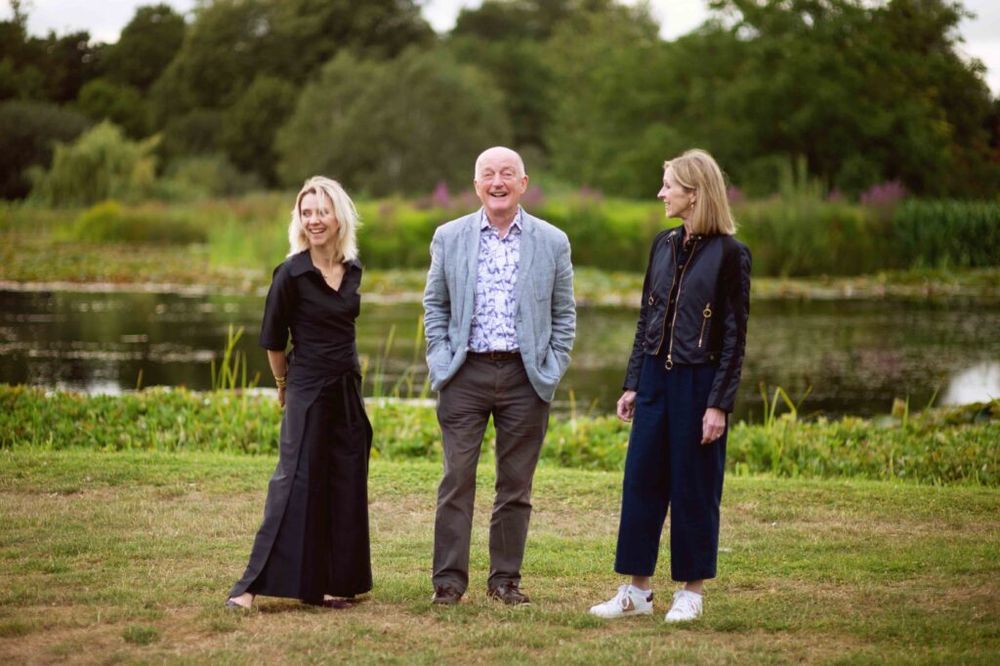
Rebecca Palmer with Oz Clarke and Susie Barrie MW in an “off” moment whilst judging last year’s WineGB awards
It was while working for herself that she embarked on the Master of Wine programme and whilst she ultimately did not get the coveted MW after her name she found the process invaluable. “I learnt so much, met amazing people and simply could not do the job I have now if I had not had that experience,” she explains.
Her first role as a wine buyer was at Laithwaite’s in 2005, which although she remembers was “fantastic” at the time, was far more limited than the freedom she was given when she joined Corney & Barrow in late 2006.
“My role was far narrower there. You would buy a wine and do the negotiation but would have very little contact with it through the supply or value chain, so never really knew what happened to it. But it was such a big company dealing with so many wines and an extremely complex customer offering.”
Home at Corney & Barrow
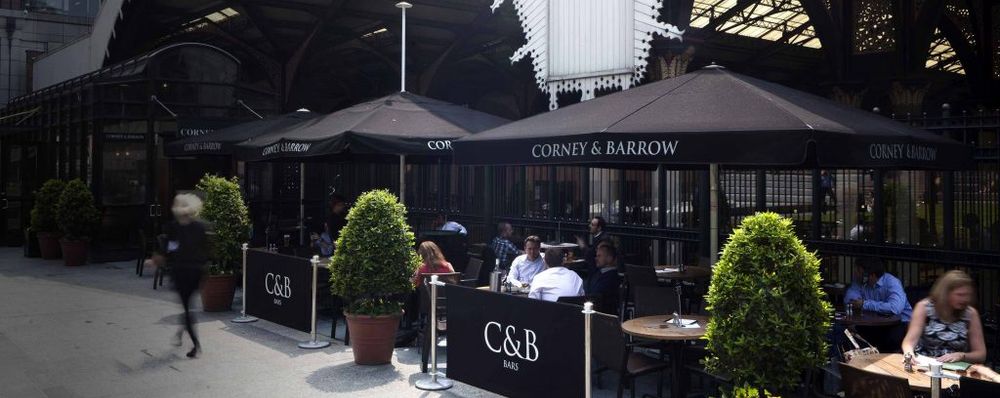
For years Palmer was an intrinsic part of the Corney & Barrow’s on-trade team developing wines for the company’s bars and restaurant before the division was sold on to Drake & Morgan in 2016
She has really found her home at Corney & Barrow – which is why she is still there 15 years later. “It was a breath of fresh air when I joined,” she says. “My role allows me to see and taste such an extraordinary range of wines. I am so lucky to be here.”
She adds: “I did not intend to be here as long as I have, but my role has evolved so much over the years. When I first started, for example, as on-trade my role meant managing and expanding our range for on-trade customers up and down the country, but at that point, Corney & Barrow Wine Bars were also a significant part of that business.” [The division was sold to Drake & Morgan in 2016].
Palmer says the role she has developed as a wine buyer is more similar to eg the US model where the buyer is essentially another part of the marketing team. “It’s about being joined up. That’s the way it should be,” she says.
You have to buy, she says, knowing the wine is right for your customer base and is going to sell. That’s the most important decision you have tomake. “I have never been on a buying trip unless I was going there to buy something quite specific. Trade fairs can be incredibly useful in allowing you to taste widely and benchmark – a central tasting table with 200+ Loire sauvignons is an absolute boon for someone like me, forever trying to maximise time without the distraction of chat, however lovely that can be. But you have to be crystal about your objectives and not deviate or you lose precious time. And by the time I go to visit a producer, I will have already done the groundwork; by that stage it’s about making sure”
She adds: “Pretty much from the get-go in my time at C&B, I have been pretty much joined at the hip with my sales colleagues, working closely particularly with James Franklin and his team and with Bryce Fraser, now our operations director and also the MD of our operation in Scotland, a strong seat of the business. The sales teams bring us crucial intelligence, in terms of our customers’ needs. It’s a vital part of the process and I do not see how a buyer can buy ‘well’ without this.”
What makes a good wine buyer
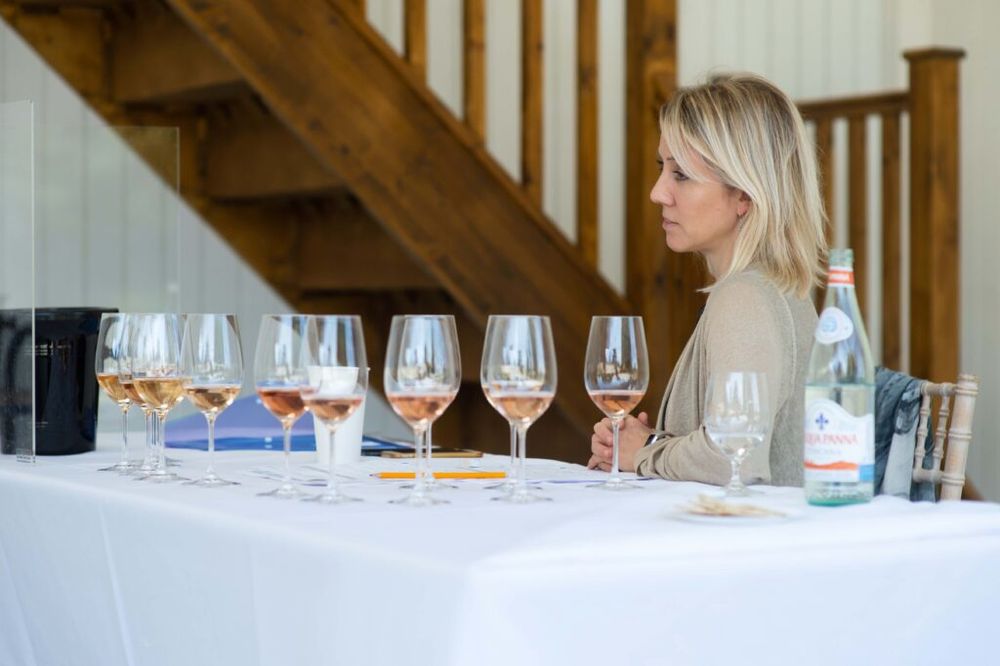
Rebecca Palmer says to be a good buyer you have to do the very long hours of tasting and be 100% focused on what you need to be sourcing for the needs of the business
She says when hiring a new wine buyer she is immediately switched off if a candidate just talks about their passion for spending all their time in vineyards.
“We are a selling operation. We need to be spending time with our customers. Of course, for a buyer developing the relationship with your producers is a given. But what I also want to see is someone who gets fired up by seeing one of our bottles on someone’s table, and cares that they love it” she explains.
“This is a very important point. Of course, we have to really get to know our producers inside out, understand what drives them, what they really want, that’s sacrosanct. And it’s an ongoing process, a relationship continually in the making and evolving. But we are not a buying operation, we are a selling operation. Actually, we’re a relationships operation. We have to focus on building relationships with our customers and their experience, meeting their needs.”
She adds: “We also have to help our producers understand those needs and how to meet them. And of course, it goes both ways: our producers are also our customers.”
“Perhaps where there has been a shift in recent times, and which lends itself to wine, is the desire on the part of the consumer to understand more about the people and the place behind the wines. So yes, we have to make sure the wine is a fantastic example of its style and represents value for money; that the bottle is attractive; but the storytelling piece is more important than ever. Lockdown really brought this home.”
Good negotiations
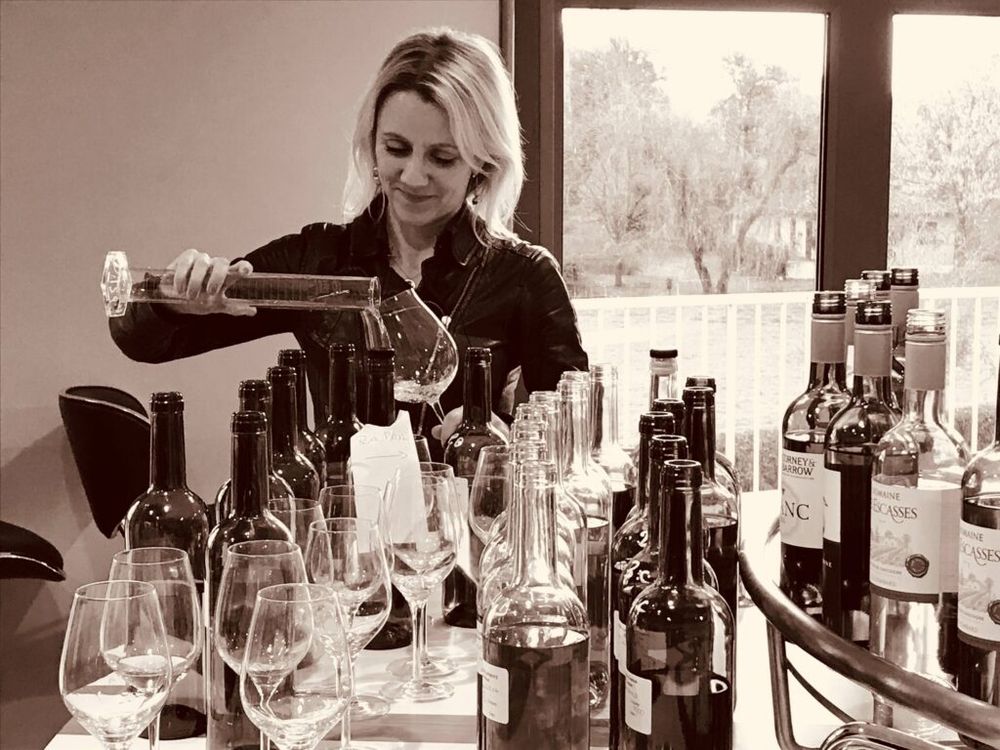
Rebecca Palmer says to be a good wine buyer you have to negotiate in a way that is good for both sides – a “win, win” as she calls it
She also believes strongly in negotiating a deal with any wine producer that is a “win, win” for both sides, taking into account C&B is operating in such a highly competitive, saturated and arguably the most mature wine market in the world. “Of course you have to buy sharply but it has to be reasonable. Screwing someone on price is really not clever” she stresses. “It’s got to work for everyone; you have to understand each other’s needs. And think about the future: how you can add value over the long term. It is a different way of working.”
She adds: “It always goes back to relationships – it’s the difference between transactional thinking and a true relationship. It’s about going the extra mile, trying to do what’s right, understanding what our producers want and seeing how we can align, for the best of our customers.”
It is also important the producer and you are in the “same place” when it comes to what the blend of the wine should taste like and price it should sit at. If you don’t see eye to eye on that then it is not going to work, she says, but that can also be a progressive process and a satisfying one.
“It takes time to get to this position of understanding,” she stresses. “All the tasting sessions, conversations, thoughts shared over the years with a producer and winemaker builds trust and understanding on both sides. They come to understand instinctively the style our customers want; and as a buyer, we get to recognise over time the building blocks of a specific wine style. And together, we push the boundaries, in pursuit of the highest possible quality. Working together, the sum is greater than the parts.
“This is also an incremental process, no short cuts. The only way to accelerate it to some extent, is to keep questioning, seek to keep learning and never, never give up. It takes thousands of hours. Then one day you’ll suddenly realise you just nailed something without thinking – unconscious competence; it’s great when it happens. I say to younger buyers: stay humble, watch, taste, and seek to learn – from buyers with knowledge of a process or a region, from viticulturalists, winemakers, journalists, whoever. Never stop asking why.”
That sort of relationship has been invaluable during lockdown when Palmer has had to do blends with key partners over Zoom and remotely. But by blending with say the team at French product, Plaimont, with whom C&B has been working for over 30 years, she can instinctively know what the wine is going to taste like and needs to taste like.
Not that it has been easy and it has often taken far more samples and discussions to get the blend right. “Knowing your producers inside out has been so important because of that,” she says.
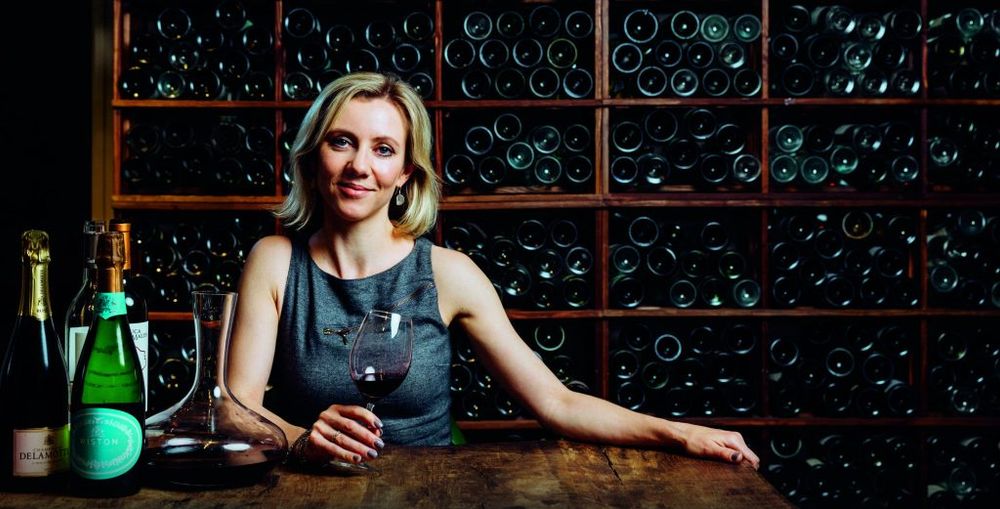
Rebecca Palmer says she is looking forward to the opportunity to travel again and meet C&B’s producers “face to face”
Managing Brexit
Palmer says trading with new Brexit trading rule has been a case of “trying to put our best foot forward, and weighing up how to manage the process going forward”.
She adds: “Given there are now the additional costs of export and import paperwork, and these charges apply whether you’re shipping half a pallet in groupage, or a full container, it makes sense to try to maximise the shipments. But this may not be possible – some producers have such limited volumes, plus we have to be extremely mindful of our stockholding and run the business properly.”
But it is still early days and she is working with different producers to see what works best for both sides. “It’s been more painful for some, than for others, but we are doing all we can to work with them and show we are not taking them for granted.”
There is also, she adds, huge potential in other places outside Europe, like South Africa and Chile, that she sees more buyers looking to.
Which brings us back to travelling the world when she can. Palmer is certainly keen to get out as much as she is able, particularly when it comes to working on her all important blends.
“Just as importantly travelling is also about bringing on new producers. Never say never of course – covid has changed so much, and we don’t know what the future holds – but it’s hard to envisage the sourcing process without being able to go and visit a producer. There is no substitute for meeting producers in situ, spending time with them, tasting and talking and getting to know each other, breaking bread etc. So our plans for re-developing certain ranges are on ice for now, until travel resumes.
“It is also so difficult to do blends remotely, and relies so much on the relationship you have with that producer. Relationships you can only really build up by spending time with them.”
Palmer’s own relationship with Corney & Barrow looks like it has got a long way to run yet.
- Rebecca Palmer is teaming up with Oz Clarke to host a special tasting in order to help raise money for Hospitality Action with its ‘Wine in to Help Out’ event. The two will be joined by a panel of celebrities (to be announced in early May) on May 13 at 8pm and are inviting the general public to taste along. Guests can purchase a special case of four wines, which will be featured during the tasting. C&B will be donating all profits to Hospitality Action. More details can be found at the dedicated website here: https://www.wineinhelpout.com/
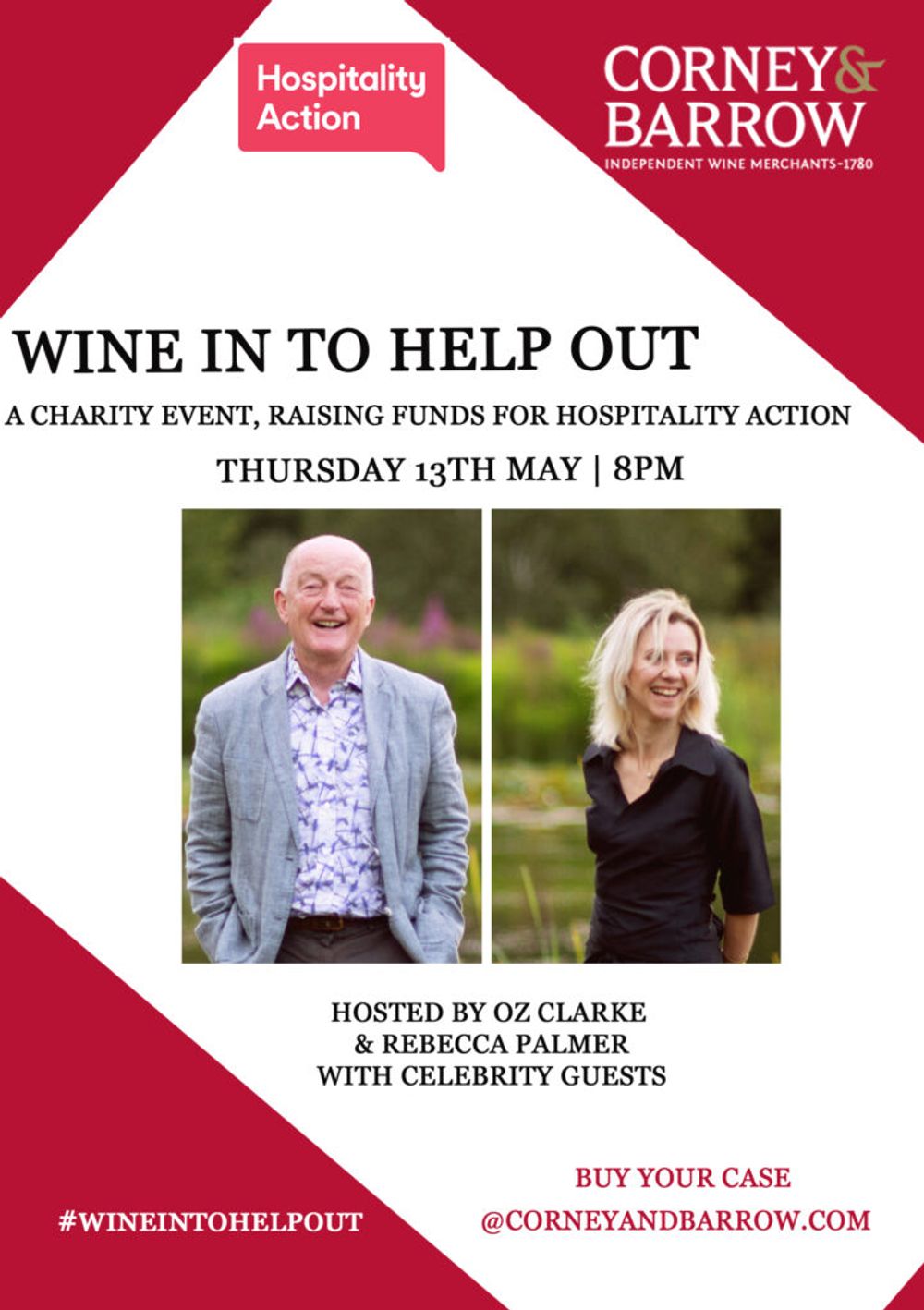
Oz Clarke and Rebeca Palmer will be tasting with celebrities to help raise money for Hospitality Action
